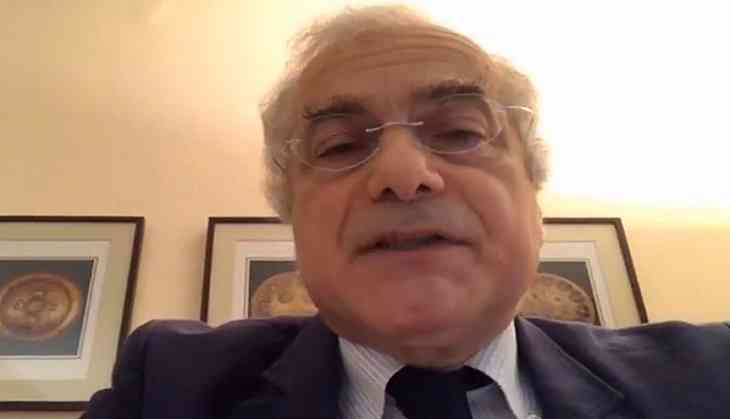
Ambassador of European Union to India Ugo Astuto on Wednesday said that tackling the crisis created by coronavirus pandemic requires solidarity, multilateral solutions and cooperation at global and regional level.
He was speaking at online discussion on `EU-India cooperation in post COVID-19 International Environment' which saw participation of heads of some leading think tanks.
"If there is one lesson that this crisis has taught us, it is that pandemic spares no one.
Tackling this global crisis requires solidarity, multilateral solutions, cooperation at international and regional level. And the EU is strongly committed to international cooperation. We are working with our international partners to do so," Astuto said in his opening remarks at the webinar.
He admitted that at the beginning of the crisis, no one was "really ready for something of this magnitude" and "EU was no exception."
"After a bumpy start, over the past few weeks, EU has stepped up to the challenge remarkably. We have put in place extraordinary measures to deal with the crisis. We have invested heavily in treatments, vaccines. We have organised joint procurement of urgent supplies. We are using every tool to save lives in a truly European spirit of solidarity," he said.
Astuto highlighted that India and EU share same values of democracy and pluralism.
"And we strongly believe in multilateralism. This is particularly important now. EU and India are already working together be it bilateral or multilateral forum such as UN, G-20," he said.
The Ambassador also stressed on fostering innovation and research in vaccines, sharing best practices and ensuring that information is shared in a transparent manner.
He said that G-20 coordination will be key and expressed appreciation for India "very vitally" starting the conversation about the virus.
"EU and India share priorities that will be central to shaping also the world' agenda in post COVID-19 scenario," he said.
The Ambassador said EU and India have converging interest about shared values. "We can succeed in overcoming this crisis only if we work together globally."
The webinar featured Shada Islam, Director of Europe and Geopolitics, Friends of Europe, Brussels; Fabian Zuleeg, Chief Executive, European Policy Centre, Brussels; C Raja Mohan, Director, Institute of South Asian Studies, National University of Singapore; Steven Blockmans, Head of EU Foreign Policy and Institutional Affairs, Centre for European Policy Studies, Brussels, and Prof Harsh V Pant, Director, Studies and Head of Strategic Programme, Observer Research Foundation, New Delhi.
Raja Mohan said that COVID crisis has sharpened contradictions between US and China.
Pointing to perceived Chinese attempts to dominate the global institutions, he emphasised the need for India and Europe to work together for reform of such institutions.
There is a sense of converging interests between India and Europe, he said.
Dr Shada Islam said that COVID-19 has shown the fragility of global health system and in post COVID-19 world, something "massive" will have to done to rebuild it.
"We are looking for leadership and we are not finding it in US and China is not ready for it yet," she said and added that there is need to rebuild the credibility of WHO.
Referring to connectivity, she appreciated Prime Minister Narendra Modi for the SAARC conference initiative on COVID crisis.
Harsha V Pant noted how India used every platform from SAARC to NAM to foster coordination.
He said crisis has exposed vulnerabilities be it of China or the West. "Leadership vacuum has been a real issue in this crisis," he said.
"With EU, there is a general alignment now which has to be taken forward in a range of areas," he added.
The panelists said the COVID crisis would impact EU-India relations in a positive way.
(ANI)


